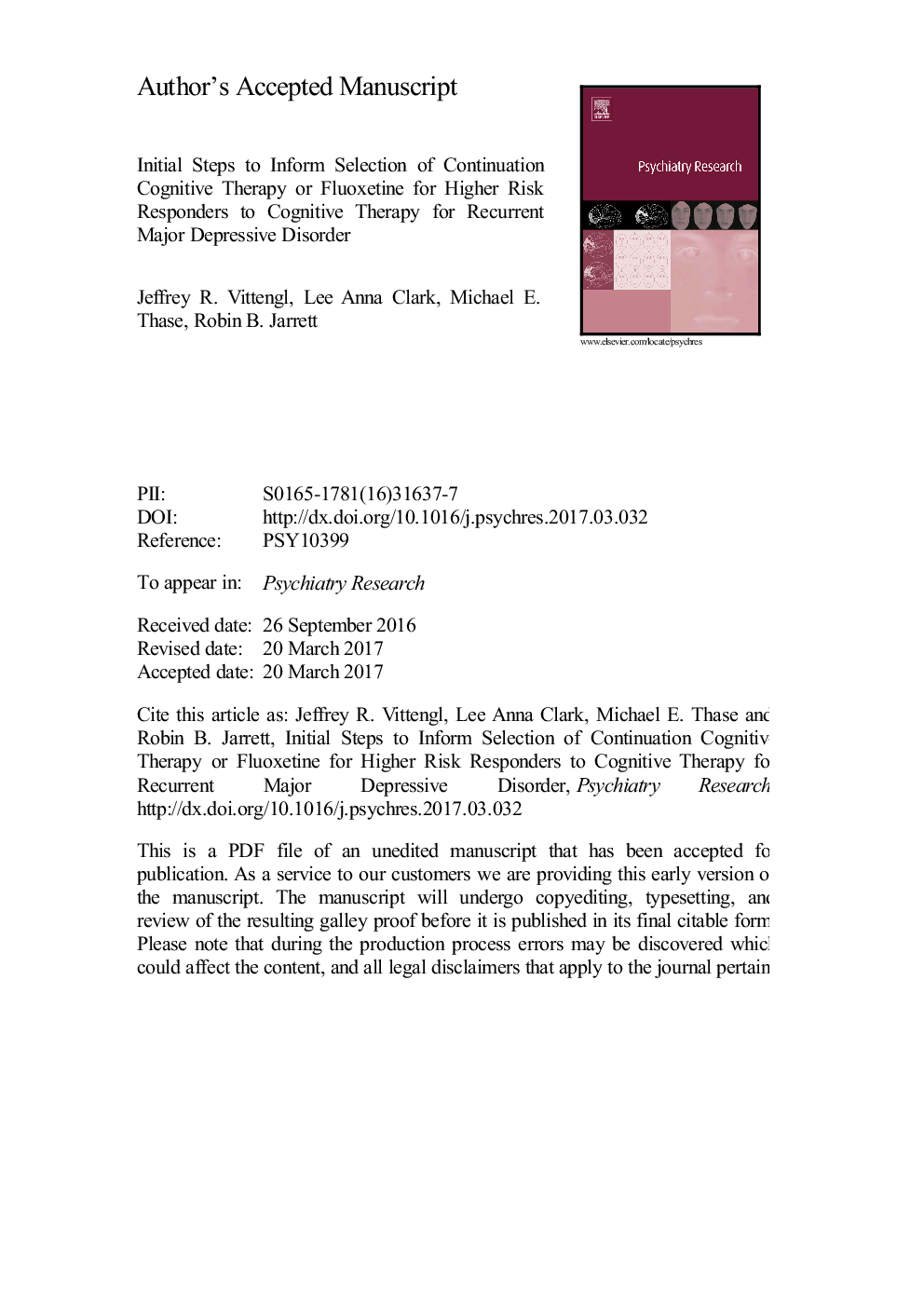ترجمه فارسی عنوان مقاله
مراحل اولیه برای اطلاع از انتخاب درمان شناختی مداوم یا فلوکستین برای پاسخگویی به ریسک بالاتری در درمان شناختی برای اختلال افسردگی اساسی
عنوان انگلیسی
Initial Steps to inform selection of continuation cognitive therapy or fluoxetine for higher risk responders to cognitive therapy for recurrent major depressive disorder
| کد مقاله | سال انتشار | تعداد صفحات مقاله انگلیسی |
|---|---|---|
| 124457 | 2017 | 32 صفحه PDF |
منبع

Publisher : Elsevier - Science Direct (الزویر - ساینس دایرکت)
Journal : Psychiatry Research, Volume 253, July 2017, Pages 174-181
ترجمه کلمات کلیدی
اختلال افسردگی عمده، درمان شناختی، فلوکستین، تسکین دهنده عود، شاخص مزیت شخصی پزشکی شخصی
کلمات کلیدی انگلیسی
Major depressive disorder; Cognitive therapy; Fluoxetine; Relapse; Recurrence; Personalized advantage index; Personalized medicine;

